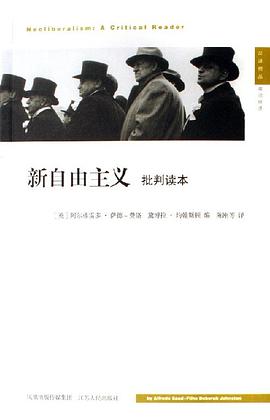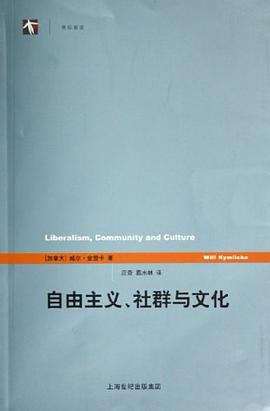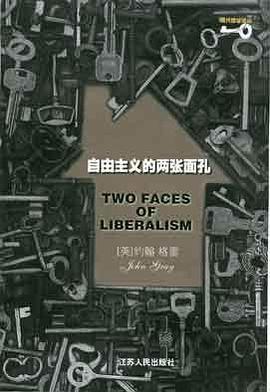
具體描述
Friedrich August Hayek CH (German pronunciation: [ˈfʁiːdʁɪç ˈaʊ̯ɡʊst ˈhaɪ̯ɛk]) (8 May 1899 – 23 March 1992), born in Austria-Hungary as Friedrich August von Hayek, was an economist and philosopher best known for his defense of classical liberalism and free-market capitalism against socialist and collectivist thought. In 1974, Hayek shared the Nobel Prize in Economics for his "pioneering work in the theory of money and economic fluctuations and... penetrating analysis of the interdependence of economic, social and institutional phenomena."
Hayek is considered to be one of the most important economists and political philosophers of the twentieth century.Along with his mentor Ludwig von Mises, he was an important contributor to the Austrian school of economic thought. Hayek's account of how changing prices communicate information which enable individuals to coordinate their plans is widely regarded as an important achievement in economics.He also contributed to the fields of systems thinking, jurisprudence, neuroscience and the history of ideas.
Hayek served in World War I and said that his experience in the war and his desire to help avoid the mistakes that had led to the war (see below) led him to his career. Hayek lived in Austria, Great Britain, the United States and Germany, and became a British subject in 1938. He spent most of his academic life at the London School of Economics (LSE), the University of Chicago, and the University of Freiburg.
In 1984, he was appointed as a member of the Order of the Companions of Honour by Queen Elizabeth II on the advice of Prime Minister Margaret Thatcher for his "services to the study of economics." He also received the US Presidential Medal of Freedom in 1991 from president George H. W. Bush. In 2011, his article The Use of Knowledge in Society was selected as one of the top 20 articles published in the American Economic Review during its first 100 years.
Bruce J. Caldwell is a historian of economics, Research Professor of Economics at Duke University, and Director of the Center for the History of Political Economy
An unimpeachable classic work in political philosophy, intellectual and cultural history, and economics, The Road to Serfdom has inspired and infuriated politicians, scholars, and general readers for half a century. Originally published in 1944—when Eleanor Roosevelt supported the efforts of Stalin, and Albert Einstein subscribed lock, stock, and barrel to the socialist program— The Road to Serfdom was seen as heretical for its passionate warning against the dangers of state control over the means of production. For F. A. Hayek, the collectivist idea of empowering government with increasing economic control would lead not to a utopia but to the horrors of Nazi Germany and Fascist Italy.
First published by the University of Chicago Press on September 18, 1944, The Road to Serfdom garnered immediate, widespread attention. The first printing of 2,000 copies was exhausted instantly, and within six months more than 30,000 books were sold. In April 1945, Reader’s Digest published a condensed version of the book, and soon thereafter the Book-of-the-Month Club distributed thisedition to more than 600,000 readers. A perennial best seller, the book has sold 400,000 copies in the United States alone and has been translated into more than twenty languages, along the way becoming one of the most important and influential books of the century.
With this new edition, The Road to Serfdom takes its place in the series TheCollected Works of F. A. Hayek. The volume includes a foreword byseries editor and leading Hayek scholar Bruce Caldwell explaining the book's origins and publishinghistory and assessing common misinterpretations ofHayek's thought. Caldwell has also standardized and correctedHayek's references and added helpful new explanatory notes. Supplemented with an appendix of related materials ranging from prepublication reports on the initial manuscriptto forewords to earlier editions by John Chamberlain, Milton Friedman, and Hayek himself, this new edition of The Road to Serfdom will be the definitive version of Friedrich Hayek's enduring masterwork.
用戶評價
1. 關於曆史研究方法的重要意義 P10 當代種種事件不同於曆史之處,在於我們不知道它們會産生什麼後果。迴溯既往,我們可以評價過去事件的意義,並追溯它們相繼導緻的後果。但當曆史正在進行時,它對我們來說就不是曆史。它帶領我們進入未知的境域,而我們又難能瞥見前途是什...
評分 評分 評分 評分1. 關於曆史研究方法的重要意義 P10 當代種種事件不同於曆史之處,在於我們不知道它們會産生什麼後果。迴溯既往,我們可以評價過去事件的意義,並追溯它們相繼導緻的後果。但當曆史正在進行時,它對我們來說就不是曆史。它帶領我們進入未知的境域,而我們又難能瞥見前途是什...
評分##作為一部在中國乃至世界的知識界廣為流傳的名著,哈耶剋此書的行文似乎顯得頗為單薄和貧乏,乃至看上去竟不像一部二十世紀的學術作品,而是對十九世紀伯剋式政論文的復歸。哈耶剋自己也提到:“這是一本政治性的書。我不想以社會哲學論文這種更高雅虛妄的名稱來稱呼它”[[1]],...
評分##不可否認哈耶剋是個強硬的反社會主義者,其著作最主要的觀點就是指齣瞭社會主義與納粹主義有著相同的哲學根源——集體主義,進而進一步論證社會主義必然走嚮極權和專製。作為一個在社會主義國傢生活多年並接受教育的人,初讀此書時我雖感醍醐灌頂但仍不敢苟同其把社會主義與納...
評分##確實讀起來不是太順暢的一本書,看到中間已經發現自己的混亂,但卻屢屢驚訝於哈耶剋對社會主義製度研究之深刻,迴頭望去,完全是神作,絲毫不愧對現代思想史經典之名。 這裏要充分說下1997年齣版時譯者之序,續中信誓旦旦的要求中國讀者批判著看,並直接對作者關於...
評分##讀書筆記: 【第一章 被離棄的道路】 (1)“由於自由主義對於某一個人不可能提供多於共同進步中的一份,結果它便被看成是一種'消極'的信條。這種進步越來越被視為理所當然之事,而不再被認為是自由政策的結果。甚至可以這樣說,自由主義的衰退,正是它的成功所造成的。”(P25...
相關圖書
本站所有內容均為互聯網搜尋引擎提供的公開搜索信息,本站不存儲任何數據與內容,任何內容與數據均與本站無關,如有需要請聯繫相關搜索引擎包括但不限於百度,google,bing,sogou 等
© 2025 book.qciss.net All Rights Reserved. 圖書大百科 版權所有





















